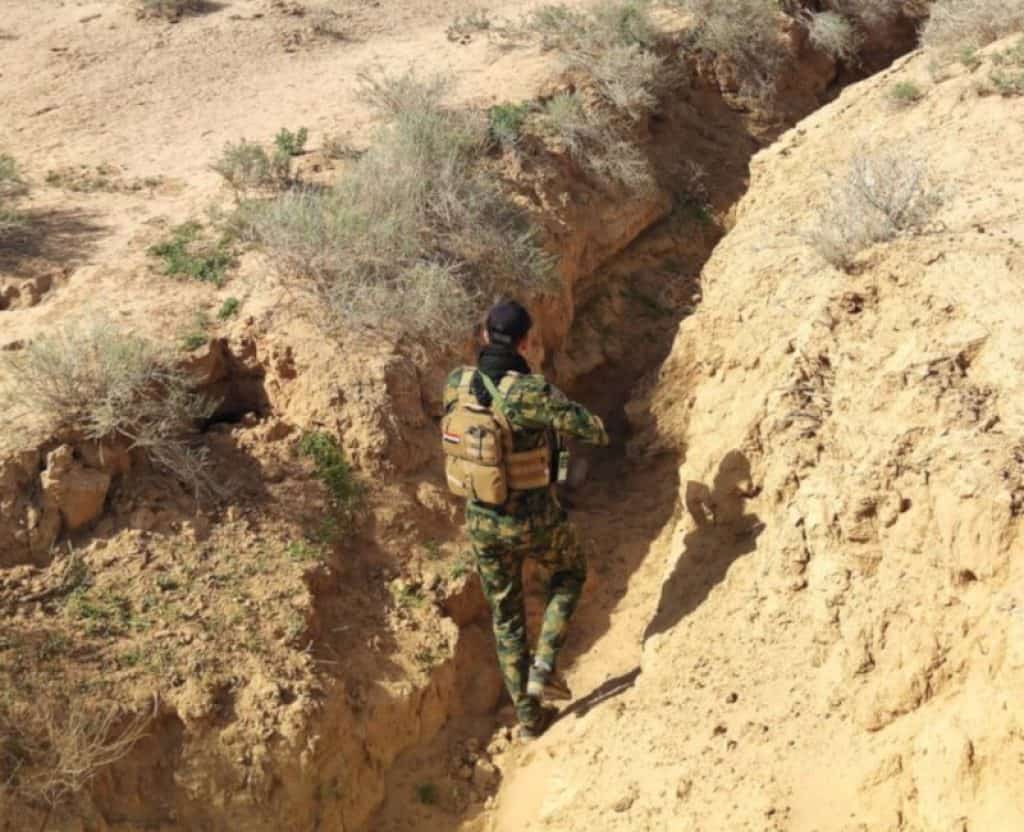
Kataib Hezbollah has denied a recent Reuters report that stated it was considering disarming, according to numerous reports quoting the group’s statement. Kataib Hezbollah is one of the Iranian-backed militias that largely comprise Iraq’s Popular Mobilization Forces (PMF). The militia has been involved in attacks on Americans in the past and is sanctioned by the US Department of the Treasury. Reuters reported on April 7 that “Iran-backed militias in Iraq ready to disarm to avert Trump wrath,” referencing increased US pressure on Iraq over the Iran-backed militias that form the PMF.
On April 8, Kataib Hezbollah released a statement, distributed to local and regional media, that rejected the Reuters report. The group said that the report “included statements attributed to what it called a ‘Kata’ib Hezbollah commander,’ which has no connection to our principles or positions. In light of this, we confirm that there are no statements by the [Kataib Hezbollah] Brigades in the media, as the statements are limited only to [those from our] official spokesman, Mohammed Mohi, and the military spokesman, Jaafar al Husseini. Anything other than them is considered a lie and slander.”
A report in The New Arab noted that Kataib Hezbollah called on international media “to be accurate and credible in their publications and to obtain information from [Kataib Hezbollah’s] authentic sources. We reserve the right to legally pursue media outlets and their employees who practice misinformation and publish news not supported by official sources.”
The Reuters report said it was based on statements from “ten senior commanders and Iraqi officials,” specifying that the reporter had spoken with six militia commanders in Baghdad and a southern province of Iraq. The report stated that the commanders spoke on condition of anonymity and noted they were from Kataib Hezbollah, Harakat Hezbollah al Nujaba, Kataib Sayyid al Shuhada, and Ansar Allah al Awfiya, all militias within the PMF.
Alaa al Haidari, a member of Iraq’s parliament, issued a statement backing the PMF on April 7. The New Arab noted that he is a member of “the Sadiqoun bloc, the political wing of Asaib Ahl al Haq, one of the most prominent pro-Iranian groups in Iraq.” In his statement, Haidari asserted that the PMF’s weapons are the strength and “sword” of Iraq. He added that disarming the factions within the PMF would remove the backbone of the government.
“A state that disarms itself in exchange for the lie of living in peace, as the devil of the age [the US administration] wants, should prepare for the howls of humiliation and the pain of losing dignity and land. […] Without the weapons of the Popular Mobilization Forces, there will be no […] defense for Iraq,” The New Arab quoted Haidari.
Kurdistan24, a Kurdish media outlet based in Erbil, noted that “Kataib Hezbollah’s denial injects uncertainty into the narrative. The group’s rejection underscores the opaque and factionalized nature of Iraq’s paramilitary landscape and complicates attempts to assess whether disarmament efforts are truly gaining traction—or remain speculative at best.”
As of April 8, there did not appear to be statements from the other militias within the PMF. In addition, the PMF’s website did not include a reference to the report. However, the organization highlighted its continued military activities in Iraq, including recent operations in Mosul and Nineveh and a meeting focusing on security in Salah al Din Governorate.
In Nineveh Governorate, the PMF said it conducted an operation securing the Iraq-Syria border with elements of the 21st, 33rd, 53rd, and 74th Brigades. According to a list of PMF units, none of these brigades are linked to the four militias mentioned in the Reuters piece.
A PMF unit in Anbar Governorate also issued a statement on April 8 saying it was prepared to confront any “emergency” that might take place on the Syrian border. These statements illustrate the widespread role of armed PMF units across Iraq. The PMF also said on April 7 that it held a meeting with UN officials to “discuss human rights,” indicating that the organization continues to conduct itself in an official capacity as part of the Iraqi state.







